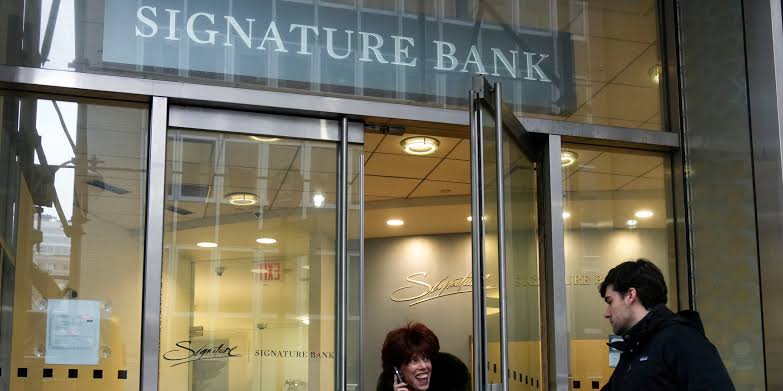Signature Bank, a crypto-friendly institution, fell apart because of mismanagement by its officers and “contagion effects” after the collapse of Silicon Valley Bank and wind-down of Silvergate Bank, a federal bank regulator said in a recent report.
The Federal Deposit Insurance Corp. said Signature Bank relied heavily on uninsured deposits, didn’t have strong liquidity risk-management practices and maintained poor risk management in general. All of that was exacerbated by a bank run spurred by the collapse of the other banks, the report said. That the bank was serving the crypto industry was also cited as a major risk.
“Additionally, SBNY failed to understand the risk of its association with and reliance on crypto industry deposits or its vulnerability to contagion from crypto industry turmoil that occurred in late 2022 and into 2023,” the FDIC said. The FDIC has been reviewing its oversight of Signature Bank since shortly after the New York Department of Financial Services seized the bank in March.
Despite industry claims that Signature was shut down specifically for serving crypto customers, NYDFS Superintendent Adrienne Harris has repeatedly said the bank had other issues.
The FDIC’s report comes on the same day that the Federal Reserve and Government Accountability Office published the results from their own reviews of Silicon Valley Bank and Signature. Like the FDIC, the Federal Reserve attributed SVB’s collapse to serial mismanagement made worse by unaccounted-for risks – in SVB’s case, the risks came from interest-rate hikes and liquidity issues.
The GAO noted that Signature had “reduced its exposure to deposits” from the crypto industry over the 12 months prior to its collapse.
“Silicon Valley Bank was affected by rising interest rates and Signature Bank had exposure to the digital assets industry. The banks failed to adequately manage the risks from their deposits,” the GAO report said.
All three reports pointed to a lack of action from federal regulators as a contributing factor, saying the banks’ supervisors could have acted sooner to request more information or otherwise manage the banks and their risks.


